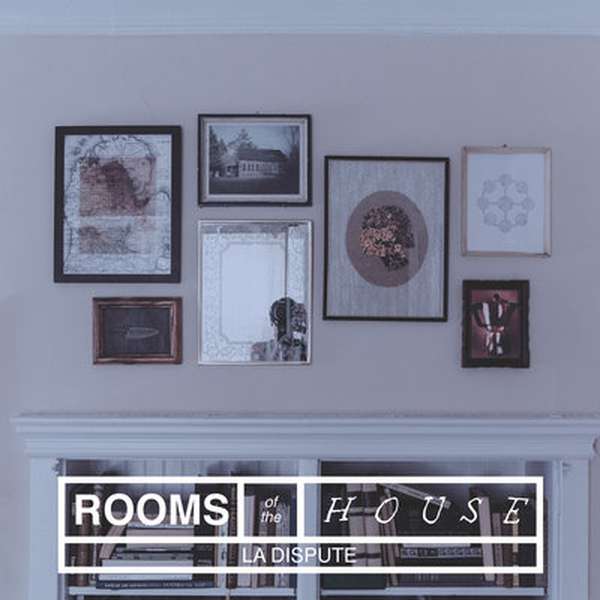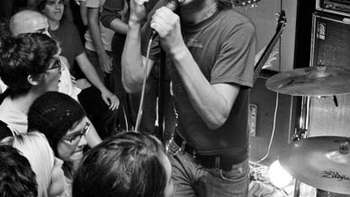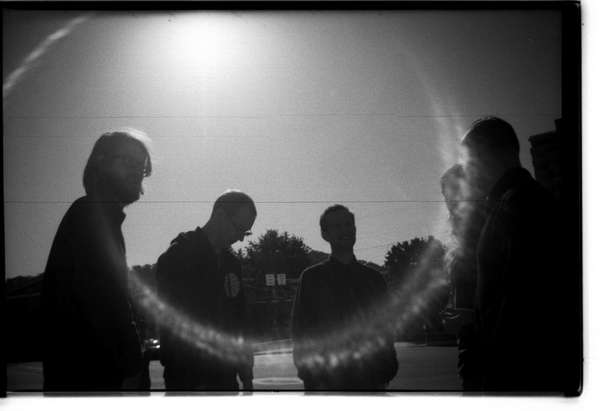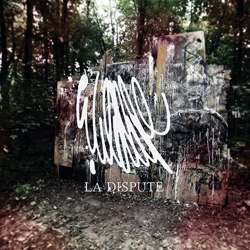La Dispute’s 2011 post-hardcore masterpiece Wildlife was not only the highlight release of that year, but one of the finest records that I myself have humbly observed. Personal accolades aside, this opinion is one shared by many others, and not without due reason. Wildlife represented at the time of it's release not only an extended display of unbridled emotionality, but also a huge leap in musicality for the Grand Rapids quintet - one that inarguably served to launch the group into new heights as artists.
Ushering along it’s successes were the record’s elaborate displays of inventive guitar passages, intelligent compositional structure and of course frontman Jordan Dreyer’s characteristically eloquent and poetic lyricism - that worked to permeate the stoic dolefulness of his bandmates’ musical backdrop with engaging tales of loss, pain and tragedy. This was all pieced together into a central, narrated tapestry of forlorn and acceptance; nuanced and undeniably masterful in its lengthy and often draining execution.
With seemingly nowhere to go but down from the near-perfection arranged on Wildlife, it was always going to be an interesting dilemma to ‘top’ what we collectively heard three years ago. While it’s still too early to say if Rooms Of The House has improved upon it’s antecedent, it is no doubt set to be a potentially divisive exercise for the band.
Appearing to feel unbound by any real need to match the melodramatic surfeit of Wildlife, the band has instead opted towards a more restrained approach this time around. This is in many ways a continuation of maturity, as it was this unchecked and at times reckless intensity that separated 2008’s Somewhere at the Bottom of the River Between Vega and Altair from sharing the weighty impact of it's eventual successor. Still, this is not to remark that the core sound itself has shifted - with the chiming guitars of introductory track "HUDSONVILLE MI 1956" serving as nothing but analog to those same feelings of animated mournfulness that have gone on to characterise the movements of a typical La Dispute composition.
Similarly, the interspersed tales of forlorn present at first seem comparable to the structural stylings of the preceding album. This time though, the stories of loss and disaster only serve to represent the hopeless decay of a new, more nuanced overarching theme. In some ways, this new motif of a certain breakdown of intimacy is even more effective than the rousing anecdotes that were explored in previous efforts, and for a number of reasons. This is only compounded by the more substantial feeling of loss and loneliness that stems from the commanding atmosphere felt over the 45-odd minute length.
Rather than being perfectly apparent upon first observation, this sense is one more deeply embedded into the impression of the total tracks, one that seeps through after repeated listens. There is an overall feeling of unresolve and a lingering sadness, amidst a sea of passionate screams and spoken word of empty rooms, coffee and road trips that combines to drastically improve the relatability and involvement of the audience.
Nonetheless, the introduction of a certain saccharine ebullience on certain tracks is something that wont go unnoticed, though listeners can rest assured in the calculated certainty of the placement of these new elements. This cheerful, almost cliche familiarity of certain fragments is key in being what assists in painting the pervading mundane of those titular ‘rooms of the house’. The chugging, pop-punk stylings of the opening to single "For Mayor In Splitsville" serves to exemplify this, or the penultimate optimism of "Extraordinary Dinner Party". These portions definitely mark a stylistic departure from the uniform farouche that was so consistent on previous efforts, and may come off as surprising to some listeners upon first introduction.
Despite these more sanguine elements, the ideas of absolute urbanity, futility and lack of resolve really do pave the way towards a more despondent end than what we have heard before from the band. The contemplative, low-key final track of spoken word really emphasises this reality - the overwhelming loneliness and uncertainty of the narrator’s final situation.
Though dissimilar and more restrained in its approach, this is not to say that it is without its own share of orotund theatrics - and it wouldn’t really be a La Dispute record as we are so familiar if they were absent. This is due in part to the compositions themselves really choosing more opportune times to express the complete spectrums of emotionality of which they are capable – and the record comes off as nothing but stronger for it. The detached, contemplative torpor really hits home harder in many ways than Wildlife ever did, though does so with much less spectacle than before.
Realistically, Rooms Of The House sounds on the surface a lot like what was going on back in 2011. Digging a little deeper though, you certainly reveal something with an entirely different purpose and perspective than its predecessors. While it may be divisive for some with its newly adopted elements and more contemplative atmosphere, it is still riddled with the same moments of poignancy and cathartic, trembling despair that made Wildlife such a classic for so many.





